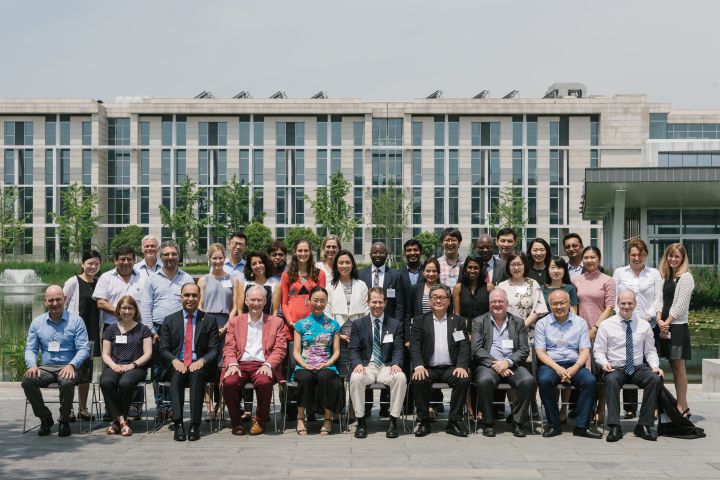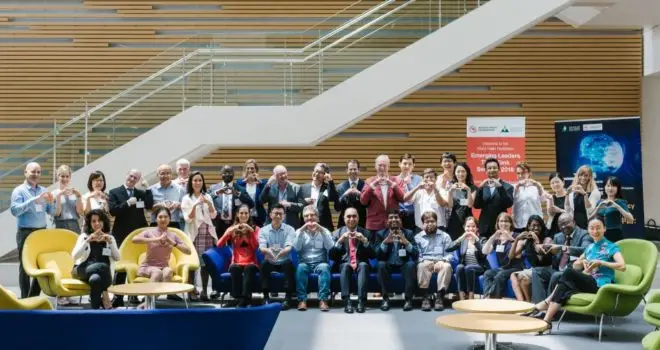
In the 5th cycle of the Emerging Leaders Programme, which is growing stronger each year, the WHF new cohort of Emerging Leaders from 18 countries have come together this week at Kunshan University in China for a 5-day think tank seminar, aiming to tackle the challenges faced in daily practice in preventing, treating and managing stroke patients. The diversity and value of the programme is emphasised by the breadth of skills and experience of our faculty and participants from clinical researchers, nutritionists, speech therapists, cardiologists, neurologists, epidemiologist’s, physiotherapists, technologists and health systems researchers bringing an exciting dynamic to the programme and challenging participants to bring their daily practice to new heights in the prevention, treatment and management of patients with stroke.
This year’s programme has the wonderful opportunity of partnering with the World Stroke Organisation thanks to the expertise of Christopher Chen and Craig Anderson as lead faculty. We also learn of the successes of our Chinese colleagues in the strides taken in research and implementation to reduce the burden of Stroke. David Wood, president of the WHF opened this year’s session and has had an active part as an Emerging Leaders faculty since it’s inauguration in 2014. As part of this year’s programme, the faculty and our new cohort of Emerging Leaders participated in a Stroke Research Symposium hosted by Dr Lijing Yan, Head of NCD Research at the Global Health Research Centre, Duke Kunshan University.
During this symposium we had the opportunity to hear from Organisations and Societies at Global and National levels on their fight to reduce the burden of stroke, including Pablo Perel, World Heart Federation, Christopher Chen, World Stroke Organisation, Weiliang Tan, Suzhou Health and Family Planning Commission, Denis Simon, Executive Vice Chancellor, Duke Kunshan University, Craig Anderson, The George Institute, China, Qi Fang, Associate Dean, First Affiliated Hospital of Soochow University, Jiguang Wang, Director, Shanghai Institute of Hypertension. These speakers offered an overview of the opportunities and challenges for research and health policy. With a focus on patient-centred care and medical reform for stroke patients in China, it is reflective to consider quality research and how this research can translate into practice. In stroke settings around the world, we rely on a strong governance and organisational structure, buy in from ministries and policy makers, and the feasibility of the health care and communities for implementation. The challenges in addressing the knowledge practice gap has become a core discussion area through the symposium as well as the Emerging Leaders programme.
And so, we look forward to the final days of the Emerging Leaders 2018 programme in Kunshan. The participants, now working together in their research teams of stroke prevention, treatment and rehabilitation are busy formulating their research questions and submitting their final proposals for the Salim Yusuf Emerging Leaders grant to further their research. We will shortly announce the successful launch of new research questions and a final summary from Kunshan.
